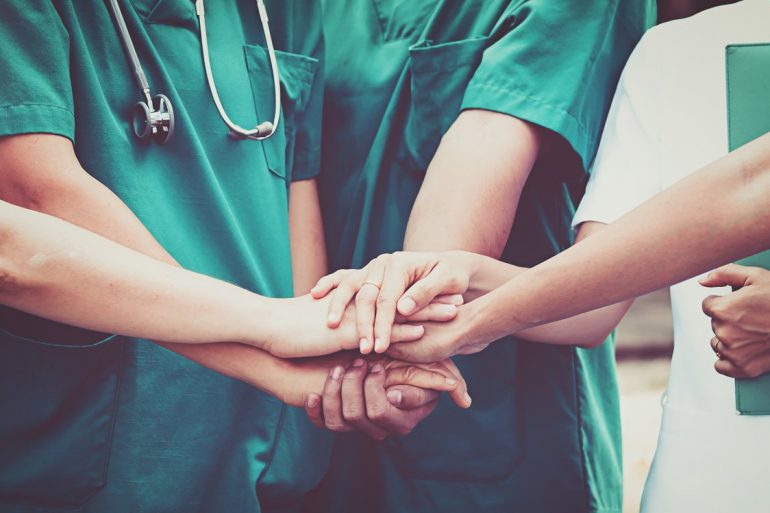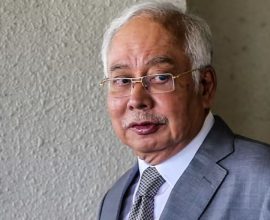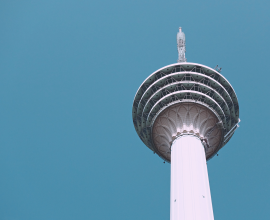Can Covid-19 patients be sued for not disclosing vital information ?
The answer is ‘Yes’: and in more ways than one. Read on…
The coronavirus pandemic has made serious inroads into our national resources.
“The brunt of that assault has fallen on the shoulders of our healthcare staff.
[1]. Patient heedlessness in Melaka
On March 23, a private hospital in Melaka was shut down for two days, after a patient failed to disclose a Covid-19 contact. And every single one of the healthcare staff, and members of the public, were quarantined: see here.
Could this have been avoided?
[2]. In Kedah
A woman was being screened at a private hospital at Kedah.
She had been admitted for delivery. Despite persistent queries, she failed to make full disclosure of her Covid-19 status.
After giving birth, she developed a fever.
It was then discovered that she had been living with a family member: he had attended a religious gathering. He had tested positive.
A ‘contact tracing protocol’ was immediately initiated.
They placed every medical personnel who had come into contact with her under quarantine: until test results arrived. That took time.
Clinical services resumed on March 24.
Tellingly, the hospital urged visitors ‘to do their part’ by ‘providing full and accurate disclosure during the screening process: see here.
Incidents like this have left medical staff with little peace of mind: see here.
[3]. Why do patients refuse to make disclosure?
The first is sheer ignorance:
The second is negative stigma.
Massive information campaigns can eradicate all that. So far there is little organised dissemination of information.
The third is a sheer lack of social responsibility. It is to this latter group that we direct this essay.
These fears are meaningless, but that is not the point.
“The healthcare workers need protection. Who will give it to them?
[4]. Can a patient be sued?
The answer is a ‘Yes’.
[5]. But why stop only at patients? And why stop only at only civil suits?
There is no statutory definition for the word ‘patient’.1Neither the PCIDA nor the Medical Act 1971 define who a ‘patient’ is But for the purposes of our discussion, not only actual Covid-19 patients, but also, two other groups of persons may be liable in law:
(1). A person who knows that another has possibly contracted the Covid-19 virus; and
(2) Any person who any healthcare staff suspects, on reasonable grounds – to have contracted the Covid-19 virus.
[6]. ‘Defendants’
From now on we shall call such obstinate patients, ‘defendant/s’.
[7]. Criminal Proceedings and Civil Proceedings
There are two kinds of proceedings that can be taken against the defendants: civil and criminal.
[8]. Criminal Proceedings first
A defendant has a duty to make disclosure of any information relating to the Covid-19 illness to the nearest district health office, government health facility, police station or the nearest village head.
[9]. Criminal Proceedings under s.10, PCIDA: Duty of Disclosure
That is a legal duty under section 10 of the Prevention and Control of Infectious Diseases Act 1988 (PCIDA).2Section 10 states: ‘Every adult occupant of any house in which an infectious disease appears, and every person in charge of, or in the company of, and every person not being a medical practitioner attending on, any person suffering from or who is dying of an infectious disease shall, upon becoming aware of the existence of such disease, with the least practicable delay notify the officer in charge of the nearest district of health office or government health facility all police station or notify the nearest village or head of the existence of such disease.
If the defendant does not do it, she commits an offence.3Section 10 (5)
[10]. The law ‘presumes’ defendant had knowledge of illness
When a person is charged under s.10, she ‘shall be presumed to have known of the existence of [the Covid-19] disease, or to have had reason to believe that the disease existed’ – unless of course she could prove to the court that she knew nothing about it, under three circumstances.4Section 10(6)
[11]. The three defences under the PCIDA
To escape the defendant has to show one of three conditions: 5Section 10 (6)
(1). he did not know of the infections disease;
(2). he could not, with reasonable diligence, have known about the Covid-19 disease’ or that,
(3). he did not have any reason to believe that an infectious disease existed’.
With all the news channels and social media platforms spewing out information on Covid-19 pandemic, which defendant could argue that he had ‘no knowledge’?
I don’t think anyone would succeed with that defence!
[12]. A second PCIDA offence: Obstruction, Blocking and Disobedience
A patient commits an offence when he:6 Section 22 reads
(1). obstructs any authorised officer from doing her duties; or
(2). disobeys an order; or
(3). refuses to give any information; or
(4). gives false information.
This is punishable by imprisonment for a maximum of two years; and a fine.7Section 24(a).Where the person commits a second offence, then the maximum imprisonment shall be for five years: she may also have to pay a fine.
[13]. Third, Penal Code Offences of ‘Giving false evidence’ and ‘Failing to disclose information’
When a law requires a person to speak the truth,8like section 10 of the PCIDA but makes any false statement, she is said to have given ‘false evidence’.9Section 191, Penal Code
Again– under the Penal Code – when a person gives false information about an offence, she can be imprisoned for a maximum of two years or be fined.10Section 203, Penal Code
The punishment for giving false evidence is imprisonment for a maximum of three years: a fine may also be imposed.11See section 190, Penal Code.
When a person knows that a crime has been committed but intentionally omits to give any information, she can be imprisoned for six months and must also be fined.12Section 202, Penal Code.
[14]. What about the civil law? Can noncompliant patients be sued in civil courts?
The answer is, ‘Yes’.
[15]. First, for a Breach of Duty of Care
The obvious one is that a health professional can claim that there has been ‘a breach of the patient’s duty of care’. An action in ‘tort’13 A civil wrong could be filed. The plaintiff has to satisfy the answer to three questions:
(1). Because of what the defendant did, was the (healthcare staff’s) damages reasonably foreseeable?
(2). If ‘Yes’, were the parties to be considered to be ‘in close proximity’14Not of the ‘khalwat’ sort! or in law, they were ‘neighbours’ ?
(3). If ‘Yes’, is it fair to make defendant liable?
This principle was established in the House of Lords case of Caparo Industries plc v Dickman.15[1990] UKHL 2
Under the current scenario, all the questions can be answered with ‘Yes’ – in favour of the healthcare worker: so a patient can be sued.
A patient has a duty to give all necessary information to the healthcare staff.
If she fails in that duty, a healthcare personnel can argue that the patient had a ‘duty of care’ to him/her – in that the patient had withheld vital information.
As a result, the plaintiff must prove that she had been prejudiced.
Prejudiced how?
The healthcare worker has to show that she had suffered a greater risk of infection.
Or that she had been needlessly quarantined.
This is easy to prove. And so a patient can be sued.
[16]. Second, for a Breach of Statute
There is a breach of law when a patient refuses to disclose vital information under a statute – a written law.16 under the PCIDA, and the Penal Code
That is another, separate reason for a filing a case.17See e.g. in X (minors) v Bedfordshire CC [1995] 3 All ER 353, and Lord Diplock in Lonrh,o Ltd v Shell Petroleum Co [1982] AC 173, [1981] 3 WLR 33, [1981] 2 All R 456
Using this principle, where a patient does something ‘unwarranted’ e.g. evading the legal responsibility to give relevant information,18 e.g. under section 10 of the PCIDA a suit can be filed.
If that ‘failure’ causes any inconvenience, ‘damage’ or ‘prejudice’ to the healthcare personnel, ‘in the exercise of his rights’, then a case can be filed.19Sir JF Stephen
The only remedy is the payment of damages.
[17]. Why sue the poor and needy?
It could be said, in defence of the poorer sections of the community, e.g. the B40, M40 and illegal immigrants, would not a suit be counter-productive?
How would they pay damages?
My answer is, if a person from one of those groups murdered someone, would we let them go free?
Second, in appropriate cases, the Minister of Health can exempt any person from being prosecuted, on presumably, compassionate grounds.20Section 29, PCIDA]
This essay is directed against the criminally evasive, who injure our healthcare workers.
[18]. Third, for ‘Trespass to the person’
The healthcare personnel can argue that the patient had committed ‘trespass’ against her.
How does one ‘trespass’?
The defendant must have caused one of three conditions to the healthcare worker:
(1). a fear that she is about to be attacked;21Elliott & Quinn (2007), p. 300 or;
(2). she has indeed been attacked;22Ibid , at p. 302 or
(3). had deprived the plaintiff of ‘freedom of movement, without any lawful justification’ for so doing.23Ibid, at p. 306
When a patient – without disclosing that he is afflicted with the coronavirus or has been in contact with the person who was – approaches a healthcare staff, what happens?
The resulting medical protocol requires the healthcare staff and her colleagues to undergo a series of tests and quarantine.
If this is not a ‘deprivation of a freedom of movement’, what is?
What sort of other prejudice occur when patients do not disclose their condition to the initial ‘screening’ healthcare staffs?
The first is that the healthcare staff is either afflicted with the Covid-19 illness, and spends time in quarantine and the ICU, or dies.
[19]. What happens when a patient refuses to disclose any coronavirus ‘contact’?
So when a patient refuses to inform medical personnel that he or she had been in contact with a coronavirus patient – but later tests positive – the entire reception area has to be cordoned-off and disinfected.
Medical personnel attending to the patient have to be quarantined.
Other medical personnel have to be brought in, as substitutes.
Properly qualified medical doctors, specialists, and the trained nurses dealing in infectious diseases are rare: ‘they do not grow on trees’.
All this because of a single lie.
[20]. Medical personnel carry a higher ‘viral load’
In reality, infected healthcare workers suffer greater effects of the disease.
They end up being placed in the intensive care units.
[21]. Emotional Trauma of healthcare staffs
After a selfish patient had infected them, after their duties are over, healthcare personnel return home to infect members of their family.
[22]. The terrible inconvenience of the Personal Protective Equipment (‘PPEs’)
When a health worker dons her PPEs, she is compelled to wear three layers.
It is exceedingly uncomfortable.
Once a PPE has been used, it has to be discarded with extreme care. There are set protocols for it.
One cannot take toilet breaks without having to remove the PPEs in a particular way – without exposing oneself to infection.
In China, it was reported that medical personnel were compelled to wear adult pampers so that they could continue to work for 12 hours shifts.
[23]. A suggestion to the Minister of Health
The obligation to give information is a legal duty imposed by the PCIDA.
First, the Minister must issue a ‘Section 3 Order’.24 under the PCIDA He must now send out a gazetted notification to the effect that – ‘all frontline healthcare staffs, whether private or governmental, and anyone who screens for Covid-19 virus, are ‘authorised officers’ under the PCIDA’.
Why?
That would help a lot in the enforcement.
And because the patient is now duty-bound to answer the questions of any such ‘officer’ truthfully: it does not matter if that person is a civilian staff or an assistant nurse, and whether she works in a government hospital or a private establishment.25sections 2 and 3, PCIA
[24]. If what happened in Wuhan happened here, what then?
Similar non-disclosure incidents occurred in Wuhan. More than 1300 healthcare staffs had become infected.
It was said that the ‘likelihood of infection’ of a healthcare staff was ‘three times higher than the general population’.
When these healthcare staffs returned home to their families, they became the prime vectors of transmission.
What was the result?
The doctors, nurses and attendants were isolated and quarantined. To treat the sick, China had to bring in 42,000 medical staff from elsewhere.
Healthcare staffs seeing ‘at-risk patients’ were isolated from their families. They were compelled to wear body protective gear, Personal Protective Equipment, N95 particle-filtering masks, and hazmat-style suits (‘PPE’): see here.
[25]. Could we do that here? And which brings us to an important point
If our pandemic widens, we have a massive problem in our hands. Our healthcare staffs are fast running out of PPEs.
They may run out of ICU beds.
They may run out of ventilators.
They may run out of medical equipment.
And if patients mulishly refuse to disclose information, we may soon run out out of healthcare workers.
If patients irresponsibly refuse to speak the truth, and infect healthcare staffs, who is there to man the ICUs?
[26]. Lying patients must not be let off the hook
The situation of the healthcare workers is grim.
We must practise greater enforcement.
Immediate action is necessary.
An example has to be made.
[The writer expresses his gratitude to Dato Jagjit Singh, a senior criminal law practitioner, Ms KN Geetha, Mr Prabhkirat Singh, Mr. GS Saran, Miss KP Kasturi, Mr. Matthew Thomas Philip, Mr. Drew Lim, and Miss Amuthambigai Tharmarajah for their timely assistance.]





